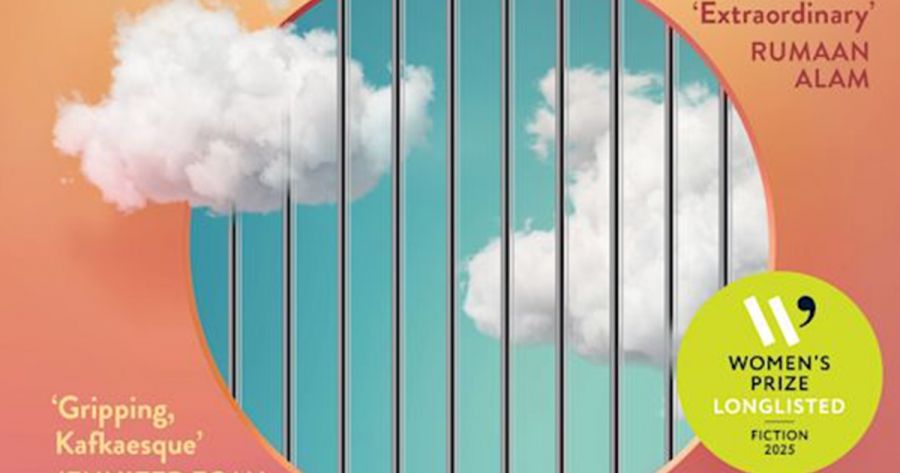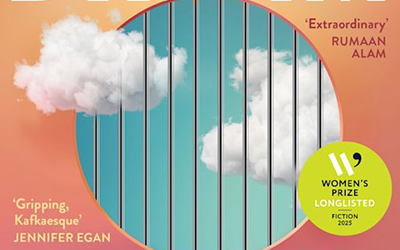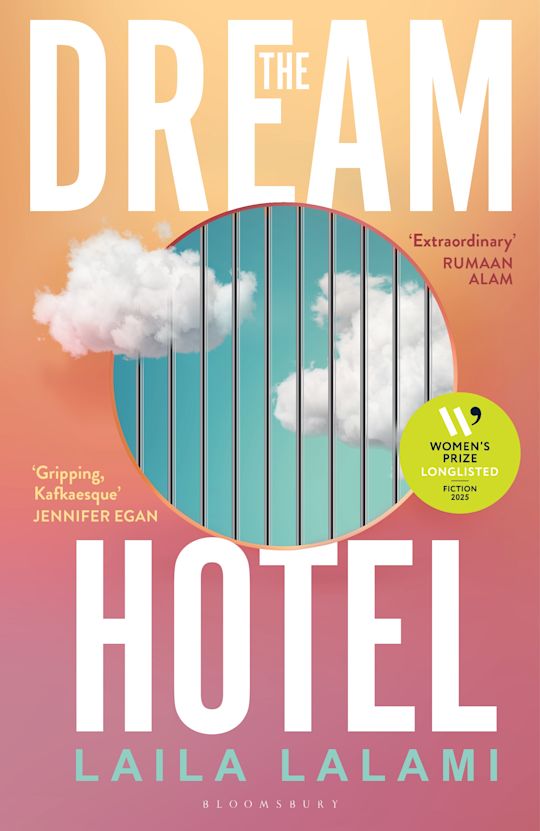
- Free Article: No
- Contents Category: Fiction
- Review Article: Yes
- Article Title: Retainee M-7493002
- Article Subtitle: Writing in Foucault's slipstream
- Online Only: No
- Custom Highlight Text:
On 22 January 1840, the Mettray Penal Colony officially opened. Mettray was a French prison farm for juvenile criminals that was imitated by other incarceration programs throughout Europe as a disciplinary model. For Michel Foucault, in Discipline and Punish (1975), its creation was a turning point in human power relations, as its structure reconfigured punishment as discipline and surveillance; it transformed society into a carceral culture. As Foucault claims, power and knowledge are one and the same. - Featured Image (400px * 250px):

- Alt Tag (Featured Image): Will Hunt reviews ‘The Dream Hotel: A novel’ by Laila Lalami
- Book 1 Title: The Dream Hotel
- Book 1 Subtitle: A novel
- Book 1 Biblio: Bloomsbury, $32.99 pb, 322 pp
- Book 1 Cover Small (400 x 600):

- Book 1 Cover (800 x 1200):

- Book 1 Readings Link: https://www.readings.com.au/product/9798217157723/the-dream-hotel--laila-lalami--2025--9798217157723#rac:jokjjzr6ly9m
Such Foucauldian theories shape Laila Lalami’s new dystopian novel, The Dream Hotel. Lalami sets the novel in a near-future United States, where the Risk Assessment Administration uses artificial intelligence to analyse a plethora of data, including civilians’ social media presence and their dreams, using a neuroprosthetic called ‘Dreamsaver’. The artificial intelligence identifies would-be criminals, enabling the RAA to incarcerate and rehabilitate them before they commit crimes. One such proto-criminal is Sara Hussein, who is stopped at LAX because she has a ‘risk score’ that is too high and, undoubtedly, because her last name is ‘Hussein’. ‘The algorithm flagged you as an imminent risk,’ she is told. She immediately reassesses the minutiae of her past: a social media post from years ago; a death in the family; her relationship with her husband, Elias. Ultimately, it was her dreams that pushed her risk score higher than the permitted score of five hundred. The RAA sends her to Madison, the eponymous ‘Dream Hotel’, where she and her dreams are placed under constant surveillance. The RAA has an all-seeing apparatus, an omnipotent eye, within the United States; the American people are in the palm of their hands. Yet, in the RAA’s mission statement, it claims to keep law-abiding Americans ‘safe from harm, while also protecting their privacy’. One can’t help but reflect on the sheer amount of data individuals give up to the tech titans of Meta and Google and how their algorithms dominate the average person’s world view.
The Dream Hotel lives in the slipstream of dystopian and speculative fiction. The leader of Madison, always referred to as the Chief Retention Officer (CRO), is a barely disguised modern miniature of George Orwell’s Big Brother, who could also very well be an Elon Musk or Mark Zuckerberg type. Lalami’s literary influences include other twentieth-century writers; she revisits the bureaucratic anguish of Franz Kafka’s The Trial. (Someone must have slandered Sara H., for one morning, without having done anything truly wrong, she was arrested.) First, she endures a prolonged and racially profiled detention; then she constantly experiences the digital red tape of Madison. Imagine if Joseph K. had to use the book’s ‘MyCourt’ app or had to wait months for an inadequate email response from a customer support team. Just as the digital world pervades every part of our twenty-first-century lives, so too does it infect Lalami’s fictional world: characters scroll on social media and news reporters publish stories ‘with assistance from PressBot’. Lalami captures technology’s ubiquity but also plays into the fears of the technophobe.
Perhaps the most interesting part of The Dream Hotel is how within it technology is used to exert power and conceal the consequences of that exertion, as well as how Lalami has infused this into the structure of her book. Sarah’s attempts to conduct external phone calls through arbitrary service disruptions can be monitored by email chains dated over months. Lalami presents these emails in full, revealing the fascistic nature of Safe-X, the company that runs Madison, by including Safe-X categorisations of the email (‘Flag: Legal’, ‘Status: Clear’), but also by showing their red-tape responses: nearly every reply begins with some variation of ‘We apologise for any inconvenience’ and ends with ‘Thank you for using PostPal’. All the while, Sarah’s risk score climbs and Safe-X detains her for even longer. Sarah, and perhaps the reader, navigate the institutional web of Safe-X with increasing frustration. Lalami also reveals Safe-X’s board meeting minutes, in which the CRO – Lalami never reveals his name, even redacting it in the minutes – laughs at footage of detainees ‘attempting to catch a flying cockroach’.
This speaks to the depersonalisation of power relations: Sarah is a subject before she is a person; she is research data; she is ‘Retainee M-7493002’. Lalami provides tables detailing Sarah’s medical history, including her last menstrual period, and, rather disturbingly, a history of her sexual partners. This bureaucratic nightmare garnishes the multimodal nature of The Dream Hotel. When Sarah starts to rebel, they extend her stay at Madison. She is constantly told by attendants, her lawyer, and even her husband to remain ‘docile’– then she will get out in no time. Writes Foucault: ‘The delinquent is an institutional product.’
This depersonalisation disintegrates Sarah’s sense of place and identity. Through frequent use of Proustian analepsis, we see the torments of her past, but Lalami blurs this narrative between dream sequences and repetitive scenes at Madison. Lalami intertwines these three threads to explore how the system breaks Sarah’s perception of reality and self.
Unfortunately, the appeal of The Dream Hotel is limited to its interesting premise and its narrative techniques; uninspiring prose undermines the book. Lalami relies on generic expressions – emotions ‘wash over’ Sarah – and far too often tells the reader how to react to absurd events. On three separate occasions we are told directly ‘It was absurd.’ I couldn’t help but picture Hamlet saying ‘It was tragic’ after being stabbed by Laertes’s poisoned sword. (That would be absurd.) Often, the political commentary is lazy: Safe-X is obviously an allusion to Musk’s Space-X – readers will have made this connection without the near identical name – and the Dream Hotel was originally a school in 1939, that most fascistic of years. If the overused creative writing adage ‘show don’t tell’ doesn’t suffice, then perhaps ‘trust your reader’ will.


Comments powered by CComment